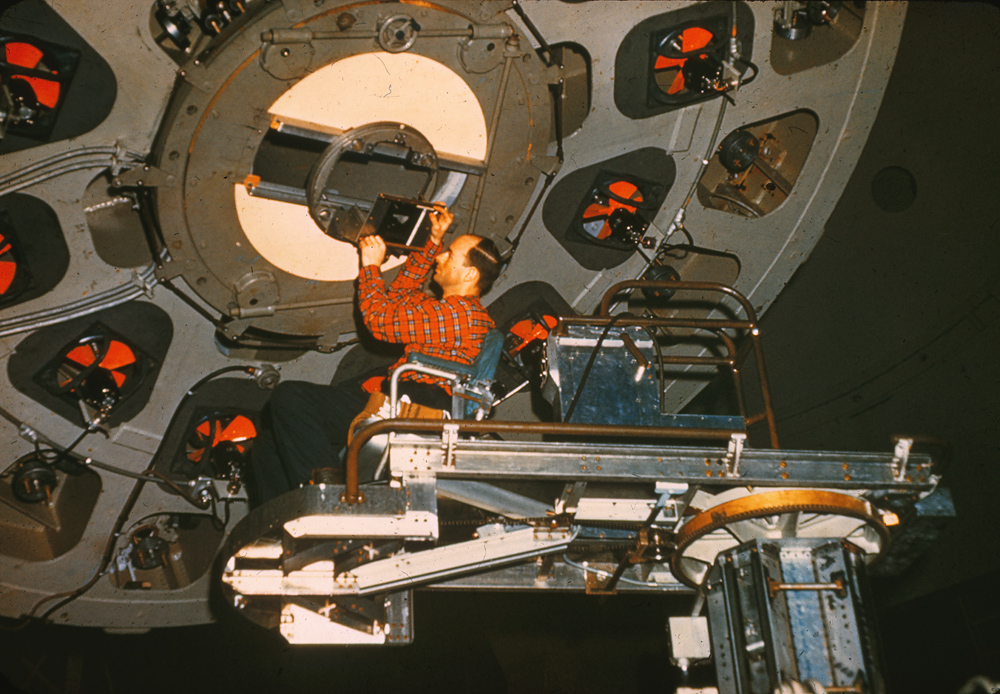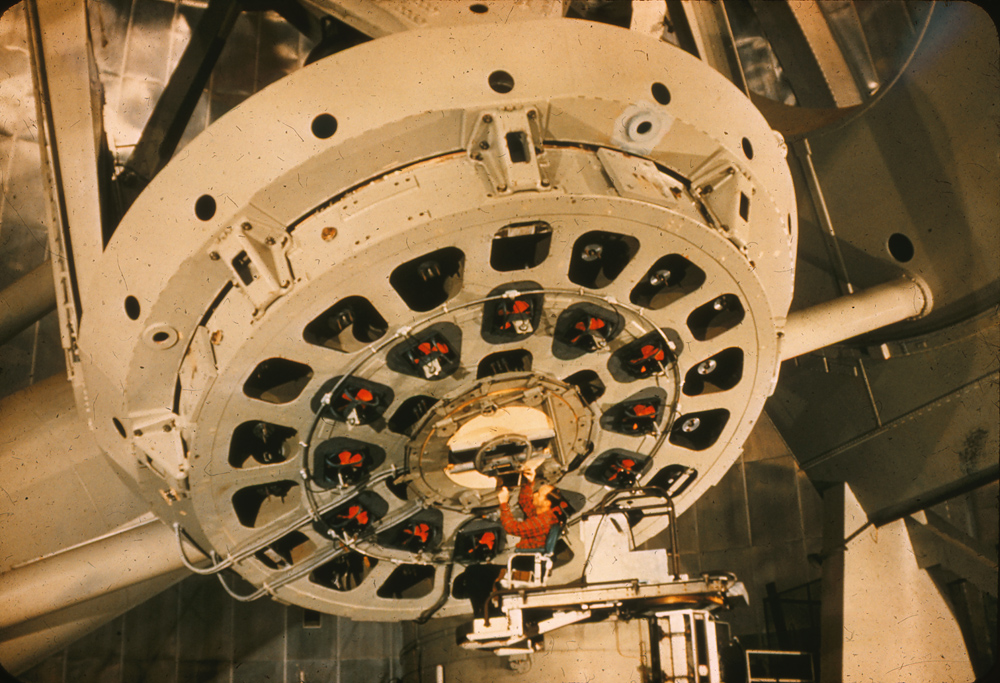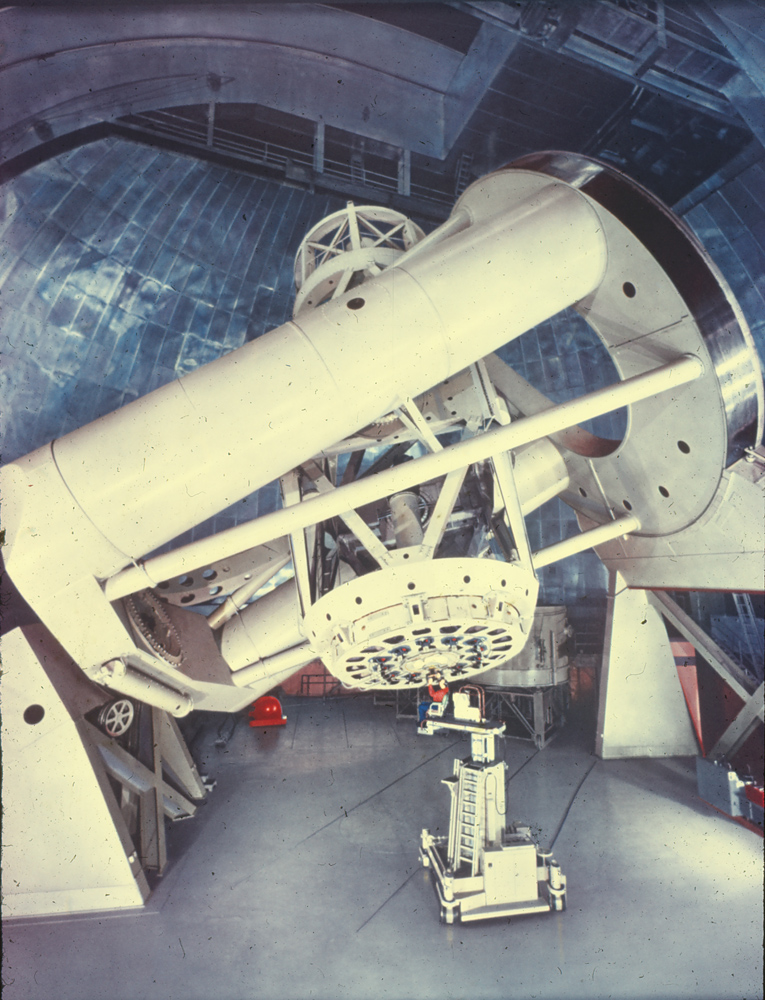A second place where light can be focused is the Cassegrain focus. Unlike prime focus, an astronomer could not ride in the Hale Telescope when using the Cassegrain (often called "Cass") focus. From the era when they were still shooting glass photographic plates, the astronomer would have to keep up with the telescope as it was moved to various parts of the sky.
To do that they would sit in a
A former employee give me more information on the "The Sky Chair". It wasn't hydraulic, but rather "a telescoping chain driven affair".
Below is an astronomer sitting in the chair demonstrating the loading of a glass photographic plate at the Cass focus.
 This shot gives a nice view of the underside to the mirror, with the red cooling fans and the mirror supports. If we pull back a bit you get a bit more of the context of the size of the astronomer, chair and telescope:
This shot gives a nice view of the underside to the mirror, with the red cooling fans and the mirror supports. If we pull back a bit you get a bit more of the context of the size of the astronomer, chair and telescope:
But you need to take in a much wider view to fully appreciate the scale here:

Do you think of astronomers as being brave? I do when ever I think of how they used to observe at Cass, sitting the chair, some 20 feet off of the ground, in total darkness, under a 530-ton telescope that is slowly and continuously moving. Yikes!
I am told that "the thing was a real behemoth to drive around the observing floor. And yes, working on top of that thing fully extended was a "thrill", even in the light of day."
No wonder they later added a safer way for astronomers to observe from Cass. In 1965 the Cassegrain Cage replaced the chair. You can see the Cass Cage in this modern shot below:

For a time astronomers rode in the Cass Cage, sitting on a chair that moved on a track to help keep them somewhat level as the telescope changed positions (Sorry, but I can't seem to find a photo of that today.). No one rides in the telescope any more. Electronic instruments ride at prime focus, in the Cass Cage, and elsewhere.



No comments:
Post a Comment